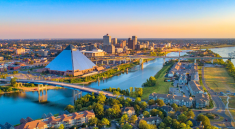The Egyptians celebratea lot, even though they are afraid of joy. They say: “Oh God, make the result of this joy a good one.” But they yearn for joy as much as their love for sorrow. They laugh until they cry and mock their sorrows!
So they are looking for joy from the heart of sadness, and therefore they are the most celebratory nation with 33 ceremonies throughout the year, the most important of which are the religious festivals such as: the Islamic New Year, Ashura, the birth of the Prophet, Eid al-Fitr, Eid al-Adha, the Day of the Immortal, the Feast of the Entry of Christ, the Assumption of the Virgin, the Feast of the Passion, the Feast of Pentecost, the Feast of Ascension, in addition to the Egyptian festivals celebrated by all Egyptians as well as the national holidays: Police Day, Taba Liberation Day, Sinai Liberation Day, July 23, October 6.

Eid-Al-Fitr (June 3-4)
Eid is one of the most beautiful days for one Arab and Islamic nation, and it has a special taste in Egypt. People there are waiting for this joy throughout the year because of the beauty of its rituals. Eid al-Fitr has this festival been named, because people can eat during the day after fasting the holy month of Ramadan, as it begins on the first day of the month of Shawwal. It is a gift from Allah to the Muslims after performing the great fasting, but the Muslims must pay zakat The Eid al-Adha, which begins on the tenth day of Dhu al-Hejjah.
Eid al-Fitr comes in Egypt after the end of Ramadan in the Hijri year, then it is not coming at a fixed date at their calendar.
In Egypt, worshipers gather after sunrise directly in the most beautiful Hilla in the mosques and perform the Eid prayers. Everyone is keen to wear new clothes. One of the most popular food during the Eid feast are cakes and fries, salted fish and nuts. Some prefer dishes of meat and onions and tahini. Most shops are closedon these days. Children are more joyful and enjoy tocelebrate this festival,which in Egypt means new clothes, eating cakes, visiting entertainment places such as gardens, cinema, amusement parks, meeting friends, visiting relatives and exchanging greetings. Parks and amusement parks provide the means to play, especially the squares that filled the fields and popular areas. One of the main characteristics of the celebration of Eid is a beautiful habit of sending messages of love and affection that shows social solidarity and the feeling for others and their happiness. From the first days of Eid, children wait for money from parents and relatives to boast among themselves with the amount they received. Many believe that Eid cakes began in Egypt with the beginning of the Fatimid era, but the historical fact confirms that it began much earlier. Egyptians have known it since the days of the Pharaohs, where ancient Egyptians used to make cakes in the shape of the sun’s disk and made it from wheat flour, margarine, and honey.

The first day of the Eid-al-Fitr is spent in the family circle where all gather together with the oldest members.
The third day is foreseen to socialize with friends and acquaintances, and in tradition it is stepped up to make friends wherever they can and to stand for the truth wherever they see the lie is presented.
On the day of Eid-Al-Fitr certain things were recommended, which contribute to marking the special features of this day:
– swimming before going to prayer
– eating before prayer
– learning Takbir on the way to the mosque and in it
– dressing the most beautiful clothes, using a lot of beautiful smells and decorating
– going to the mosque one way and returning using the other
– visiting relatives and friends.
Yes, this celebration is for Muslims only, but you have to see how all Egypt is in a state of happiness and joy, so everyone celebrates and rejoices and goes out to the streets to spread love and happiness.
Sun Festival at Abu Simbel (October)
Egyptian civilization has left a huge mark in the history of mankind. One of the most famous characters of ancient Egyptian history was Pharaoh Ramses II,which reign was one of the most fruitful in the development of the state on the banks of the Nile. He successfully fought, extending his rule to all large territories. In honor of his victories in Egypt and Nubia, hundreds of monuments were erected, numerous temple buildings were built, which were the masterpieces of ancient Egyptian architecture. Unfortunately, a very small number of them have spared the past millennia.
But in the preserved majestic temple of Ramses II, carved into the rock in the Nubian city of Abu Simbel, one of the most exciting and spectacular festivals in the world is held annually – the Festival of the Sun in Abu Simbel.
To understand what is happening at the festival, you need to know the history of this place, as well as the architectural masterpieces erected there.

It was in October that the Sun Festival was held next to the temple, this year celebrating the 3271 anniversary of the beginning of the rule of the famous ruler of Egypt, the winner of the Hettians, the great son of God, who lived a rich life, leaving behind the memory of the strong kingdom and developed cities of Egypt and Nubia.
The festival begins at sunrise, when the first ray penetrates the temple, sneaks through the darkness reigning in the room and illuminates the head and torso of Ramses II, immortalized in stone. In this way, the architects showed that even on such significant days, even the Sun welcomes the Pharaoh. The light penetrates the temple for only twelve minutes, so the spectacle of this “sunny greeting” is rare, and only a limited number of people can see it. Near the temple is now installed a huge screen, which is a live broadcast from the cave, so that those who did not get to the temple, can watch the sun miracle virtually.
During the days of the Sun Festival, Abu Simbel receives thousands of visitors from all around the world.
Cairo Film Festival (November 20-29)
Cinema in Egypt has a long and glorious history. As early as the beginning of the 1920s, the leading Egyptian filmmakers began to say that it would be nice to organize an international film forum in the country, which at that time was going through a period of formation. But due to various reasons, this plan could not be realized then. And only in 1976, the first international film forum was held in Cairo.
The first Cairo International Film Festival opened its doors on August 16, 1976. At the same time, its organizers decided that the cinema forum would become annual and would be held under the auspices of the Egyptian Writers and Critics Association.
Today, the Cairo International Film Festival is held under the patronage of the Ministry of Culture of Egypt, and its undisputed honorary president, in recent years is Omar Sharif. The film forum in Cairo is the oldest film festival in this part of the world. In addition, the International Film Festival in the Egyptian capital gave impetus to the emergence of several similar film festivals in the Middle East.
Every year, more than 300 films from all over the world take part in the program of the Cairo International Film Festival, but still, most of them were shot in the countries located in this region.
From the very first days of its existence, the cinema festival in Cairo was approved by the FIAPF, as it met the main criteria that the federation makes for such events:
– film festival should be international;
– the film festival should have the support of local film associations and other similar state and public organizations;
– there should not be films in the competition program of the film forum that have previously taken part in similar shows in other countries; there should be only one such international film forum in the country.
The Cairo International Film Festival is, first of all, a public display of competitive film works and films that do not participate in the compulsory program. Most of the films that are shown at the cinema forum, in the capital of Egypt, are from their creators or actors who played the main roles in the film. Among the guests of the film festival in Cairo, you can meet movie stars from the Arab world and a number of European countries, as well as actors from the United States, although its main participants are the so-called soap opera actors.
If you got interested in visiting Egypt now, make sure to stop by at the German website of Backpackertrail, where you can find even more blog posts about Egypt and what the must sees are, next to these spectacular festivals.
List of other major festivals
- January – Police Day and Revolution Day 25 January
- February – National Love Day
- March – Taba Liberation Day
- April – Sinai Liberation day
- May – Labor Day
- June – Eid Al Fitr(this year)
- July – The Revolution of 23 July
- August – Nile Feast
- September – None (but may be a festival matches at a random year of another calendar)
- October – Armed Forces Day
- November – None (but may be a festival matches at a random year of another calendar)
- December – Christmas




